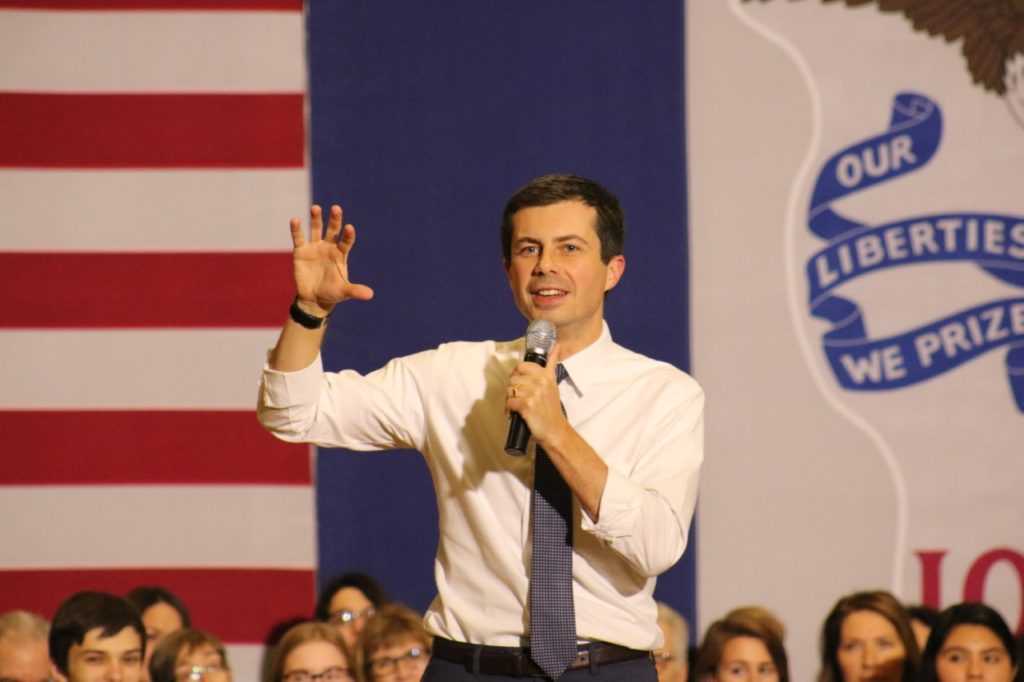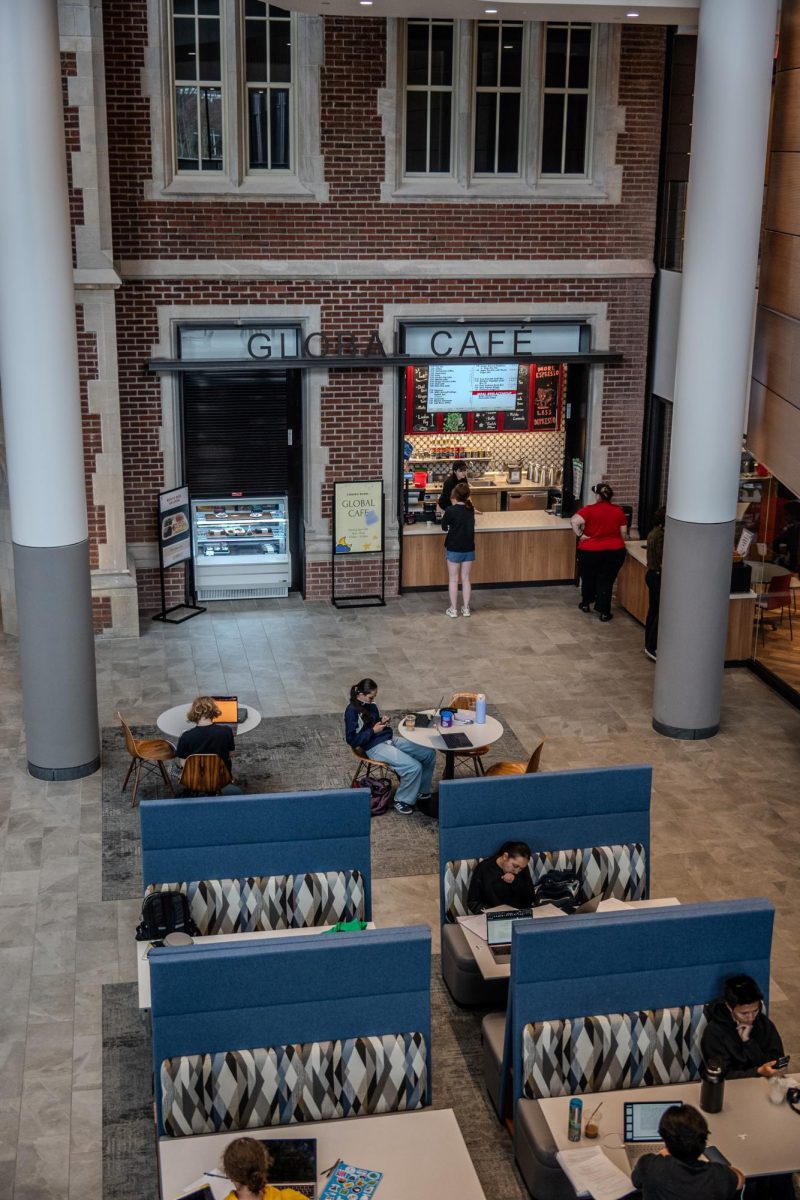
During his visit to Grinnell, Pete Buttigieg brushed aside student criticism and protests, sticking to a message of unity and defending his policy.
After a general introduction to his campaign, Pete Buttigieg opened up the floor to audience questions and received several questions from students critical of his record and current policy positions.
Kiran Lowenstein ’22 asked about his plans to increase access to public education, saying, “Your higher education plan leaves in place a system which is impossible to navigate. And your campaign is spreading lies about how benefits from public goods.” Buttigieg responded to this saying, “Let’s talk about the areas I think we agree on, and then let’s negotiate the ones that we probably don’t.” He then outlined his plan to make public higher education free for those in the bottom 80 percent of household income earners and to ensure those in the top 20 percent do not face barriers to education in the form of cost.
After several other audience questions, his final question came from Keir Hichens ’22 about climate change policy. “In a time that is a time of crisis, a time that is generation-defining, how can we trust you, while you’re taking money from corporate donors and attacking progressive leaders like Bernie Sanders and Elizabeth Warren to lead our country into a brighter future?”
Buttigieg replied, “I’m not attacking anybody,” adding that he is merely engaging in respectful discussion on policy. He then defended his campaign’s donation record. “I don’t take corporate PAC money. We have over 700,000 individual human beings who have contributed to this campaign,” he said.
Following his response, Hichens and other members of Grinnell’s Sunrise Movement chapter, began unfurling banners which read, “Wall Street Pete” and “Youth to Pete: you will kill us.” Buttigieg waited patiently as the protesters positioned themselves and the audience laughed. He appeared to brush off these attacks, saying, “You will kill us? That’s really mean,” and again saying he does not take corporate PAC money. To the “Wall Street Pete” banner he responded, “That’s what they used to call Obama, and then he created the CFPB and put Elizabeth Warren in charge of it,” which was followed by an eruption of audience applause.
To one student attendee, these apparent fact corrections of the protesters hurt the impact of their message. Ishai Melamede ’23 said, “Certain questions that were asked where he kind of corrected facts… demonstrated to some degree a lack of respect for his time and the time of the other people that showed up there and the political process. I think we should be highly critical of the people that are in charge and running to be in charge, but I think that has to come from a place where we’re dealing with real information.”
Afterwards, protesters Dylan Bremner ’20 and Ashton Aveling ’22 answered questions about the event. “If you actually look at where his money’s coming from, he has just very clear, tangible connections to Wall Street and corporate America,” Bremner said. Aveling added, “You know how he dodged the question on corporate money by saying he has individual donors? Those individual donors are all Wall Street executives giving the maximum donations.” Both said the protesting did not have the effect they had hoped for but that they “learned a lot.”
According to OpenSecrets.org, large donors make up 52 percent of Buttigieg’s campaign cash compared to 25 percent of Bernie Sanders’ and 29 percent of Elizabeth Warren’s.
OpenSecrets.org also showed that Buttigieg is not taking any more money from PACs or individuals associated with corporations such as Amazon, Comcast, or Walmart than any other Democratic presidential candidate.
Additionally, according to the New York Times, Buttigieg had accepted donations from federal lobbyists as his campaign launched but has since sworn off all donations from federal lobbyists, corporate PACs, and the fossil fuel industry.
However, because of public support from wealthy Democrats, as well as some donor names released by the Buttigieg campaign, The Washington Post, as well as some other news sources, consider Buttigieg to be the favorite for Wall Street executives.
Bremner said, “I just hope people fact check very carefully the candidate they are committing to vote for, follow where the money comes from. Really look at specifically what their voting record has been in the past and how likely they are to actually honor the promises that they’re making.”





























































Blair Sadewitz • Dec 16, 2019 at 7:34 pm
“Kiran Lowenstein ’22 asked about his plans to increase access to public education, saying, “Your higher education plan leaves in place a system which is impossible to navigate. And your campaign is spreading lies about how benefits from public goods.” Buttigieg responded to this saying, “Let’s talk about the areas I think we agree on, and then let’s negotiate the ones that we probably don’t.” He then outlined his plan to make public higher education free for those in the bottom 80 percent of household income earners and to ensure those in the top 20 percent do not face barriers to education in the form of cost. ”
The plan: free college for all but the top 1/5th of income earners.
The criticism: How is that supposed to help us? We’re still going to be confused! What are you going to do about that?
Confused about what? If filling out a FAFSA is too difficult, college isn’t the gig for you.
This is why we can’t have nice things. If Buttigieg handled this diplomatically, he is most assuredly qualified
Laurence • Dec 8, 2019 at 5:59 pm
“Those individual donors are all Wall Street executives giving the maximum donations.”
All 700,000 of them.